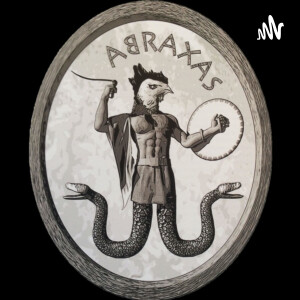
Remarkable Origins of Ancient Greece | 4K DOCUMENTARY
 2023-08-24
2023-08-24
https://www.patreon.com/GnosticInformant Please Consider joining my Patreon to help finding scholars to bring on. Any amount helps me. Thank you existing Patrons. 2nd Channel: https://www.youtube.com/@LateNiteGnosis Follow me on Twitter: https://twitter.com/NealSendlak1 Discord: https://discord.com/invite/uWBZkxd4UX The origins and ethnic identity of the Pelasgians are uncertain. Some ancient sources believe they were an indigenous people of Greece, while others suggest they might have migrated from different regions, including the Black Sea Regions, Anatolia or the Balkans. Their precise ethnicity and language remain unresolved, though a combination of Proto-Indo European and Native Mediterannean is the most likely. The earliest references to the Pelasgians can be found in ancient Greek literature, particularly in the works of Homer, Herodotus, and Thucydides. In the Iliad, there were Pelasgians on both sides of the Trojan War. WHen Homer explains who the Ancient Trojans were, Pelasgians are mentioned between the Hellespontine cities and Thrace. Homer calls their town or district "Larisa" and characterises it as fertile, and its inhabitants as celebrated for their spearsmanship. He records their chiefs as Hippothous and Pylaeus, sons of Lethus, son of Teutamides. The Iliad also refers to the camp at Greece, specifically at "Argos Pelasgikon", which is most likely to be the plain of Thessaly, and to "Pelasgic Zeus", living in and ruling over Dodona. According to Homer, Pelasgians were camping out on the shore together with the following tribes: "Towards the sea lie the Carians and the Paeonians, with curved bows, and the Leleges and Caucones, and the goodly Pelasgi." In the Odyssey, they appear among the inhabitants of Crete. Which would possibly equate them with the Minoans themselves, who invented Purple Dye and migrated east towards coastal Levant and conquered Egypt. Odysseus, affecting to be Cretan himself, instances Pelasgians among the tribes in the ninety cities of Crete, "language mixing with language side by side".Last on his list, Homer distinguishes them from other ethnicities on the island: "Cretans proper", Achaeans, Cydonians, Dorians, and "noble Pelasgians". A fragment from Hesiod, calls Dodona, identified by reference to "the oak", the "seat of Pelasgians", thus explaining why Homer, in referring to Zeus as he ruled over Dodona, did not style him "Dodonic" but Pelasgic Zeus. He mentions also that Pelasgus was the father of King Lycaon of Arcadia. Asius of Samos claimed that Pelasgus as the first man, born of the earth.This account features centrally in the construction of an enduring autochthonous Arcadian identity into the Classical period. In a fragment by Pausanias, he cites Asius who describes the foundational hero of the Greek ethnic groups as "godlike Pelasgus [whom the] black earth gave up". Sophocles, in one of his famous plays, presents Inachus, as the elder in the lands of Argos, the Heran hills and among the Tyrsenoi Pelasgoi, an unusual hyphenated noun construction, "Tyrsenians-Pelasgians". Interpretation is open, even though translators typically make a decision, but Tyrsenians may well be the ethnonym Tyrrhenoi. A possible connection to the city of Tyre, a possible location where many Minoan Migrants moved to. All of this comes into context when we examine the writings of Pherecydes of Syros, the famous Pre-Socratic, who claims to have in his posession, the Pelasgian Creation myth, who he says was given to him by Phoenican Scholars. The sequence of Pherecydes' creation myth is as follows. First, there are the eternal gods Zas (Zeus), Chthoniê (Gaia) and Chronos (Kronos). Then Chronos creates elements in niches in the earth with his seed, from which other gods arise. This is followed by the three-day wedding of Zas and Chthonie. #gnosticinformant #4k #documentary
More Episodes
 2023-08-24
2023-08-24
 2023-08-24
2023-08-24
 2023-08-24
2023-08-24
 2023-04-26
2023-04-26
Create your
podcast in
minutes
- Full-featured podcast site
- Unlimited storage and bandwidth
- Comprehensive podcast stats
- Distribute to Apple Podcasts, Spotify, and more
- Make money with your podcast
It is Free
- Privacy Policy
- Cookie Policy
- Terms of Use
- Consent Preferences
- Copyright © 2015-2024 Podbean.com




